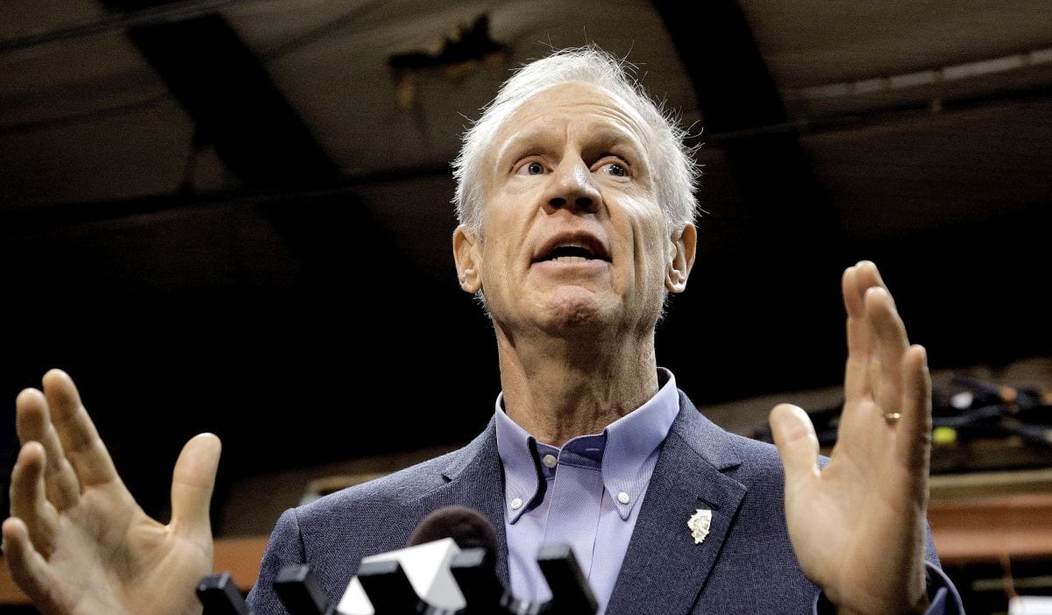Competition among states to lure new business within their borders is ferocious. They all try to look for an edge to beat out their neighbors.
The state of Illinois hasn’t had much of an advantage recently. Its finances are in the toilet. Its politics is so dysfunctional that they’ve been unable to pass a budget going on three years. Taxes are sky high. The unions make life miserable for management. The schools suck, the roads are a joke, airports are a congested mess, and businesses have been fleeing the state in terror of what might come next.
And then, there’s Chicago…but don’t get me started.
But for Illinois, there’s hope. There is hope that the state will soon achieve something so remarkable, so unique, that no other state in the union would dare dream of it.
Illinois is on track to become the first state in the nation to see its bonds rated as junk.
Not one or two steps above junk status. I mean real, honest-to-goodness, full-blown 100% garbage.
It will go nicely with the landfill that Springfield has become.
Illinois is on track to become the first U.S. state to have its credit rating downgraded to “junk” status, which would deepen its multibillion-dollar deficit and cost taxpayers more for years to come.
S&P Global Ratings has warned the agency will likely lower Illinois’ creditworthiness to below investment grade if feuding lawmakers fail to agree on a state budget for a third straight year, increasing the amount the state will have to pay to borrow money for things such as building roads or refinancing existing debt.
The outlook for a deal wasn’t good Saturday, as lawmakers meeting in Springfield for a special legislative session remained deadlocked with the July 1 start of the new fiscal year approaching.
That should alarm everyone, not just those at the Capitol, said Brian Battle, director at Performance Trust Capital Partners, a Chicago-based investment firm.
“It isn’t a political show,” he said. “Everyone in Illinois has a stake in what’s happening here. One day everybody will wake up and say ‘What happened? Why are my taxes going up so much?'”
Here’s a look at what’s happening and what a junk rating could mean:
Ratings agencies have been downgrading Illinois’ credit rating for years, though they’ve accelerated the process as the stalemate has dragged on between Republican Gov. Bruce Rauner and the Democrats who control the General Assembly.
The agencies are concerned about Illinois’ massive pension debt, as well as a $15 billion backlog of unpaid bills and the drop in revenue that occurred when lawmakers in 2015 allowed a temporary income tax increase to expire.
“In our view, the unrelenting political brinkmanship now poses a threat to the timely payment of the state’s core priority payments,” S&P stated when it dropped Illinois’ rating to one level above junk, which was just after lawmakers adjourned their regular session on May 31 without a deal.
Moody’s did the same, stating: “As the regular legislative session elapsed, political barriers to progress appeared to harden, indicating both the severity of the state’s challenges and the political difficulty of advocating their solutions.”
I’ve got news for you: there are no “solutions” to Illinois’ problems — at least none that don’t involve massive, prolonged, nearly unbearable pain for taxpayers, for the poor, for businesses … for the nearly 13 million people still living in the state despite all.
Obviously, Illinois needs more money. Lots of it. The problem was exposed in 2014, when the legislature enacted a massive increase in personal and business taxes that drove people out of the state and initiated a bidding war among Illinois’ neighbor states for companies sick and tired of the highest corporate tax rates in the nation.
The Democrats who enacted the tax increase promised this would solve the state’s fiscal problems — or at least give the state some breathing room. It didn’t. Instead, the politicians found lots of inventive uses for that extra cash so they still managed to short-change schools, the pension system, and the thousands of small businesses the state owes money to.
So new taxes or more taxes are not a solution. What’s needed is what Republican Governor Bruce Rauner calls “structural changes” — changes to the political culture especially that would remove the jackboot of Springfield politicians from the necks of Illinois citizens. Rauner certainly doesn’t have all the answers and his version of the budget would be almost as bad for the elderly and the poor as having no budget at all.
But the difference between Rauner and the Democrats is that at least the governor has something realistic on the table. The Democrats have a fantasy budget with massively unrealistic projections of revenue and economic growth. Of course, they wouldn’t be able to finance their pet schemes unless they fudged the numbers, so you can hardly blame them.
Rauner has been so demonized by the press and the Democrats that the burden for making a deal falls on him. If I were him, I would announce that I wasn’t going to run for re-election next year and then push his proposals — with some modifications — daring the Democrats to shoot them down.
By August, they will be closing down nursing homes and it will be too late to do anything except place the blame for the tragedy directly where it belongs: on the people’s elected representatives from both parties.










Join the conversation as a VIP Member